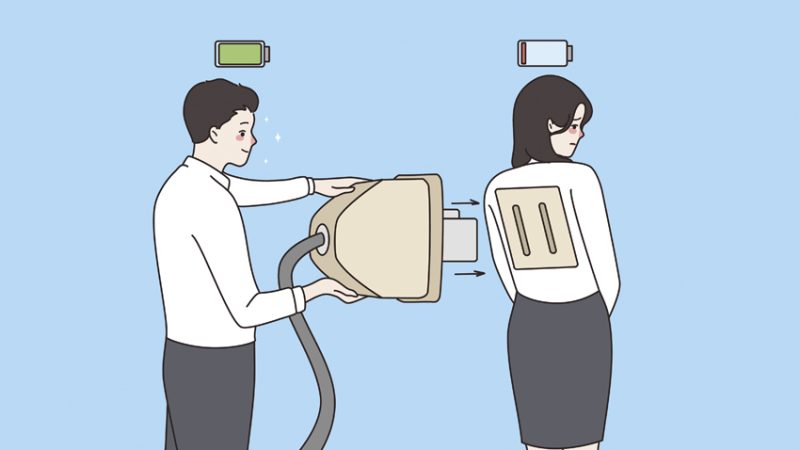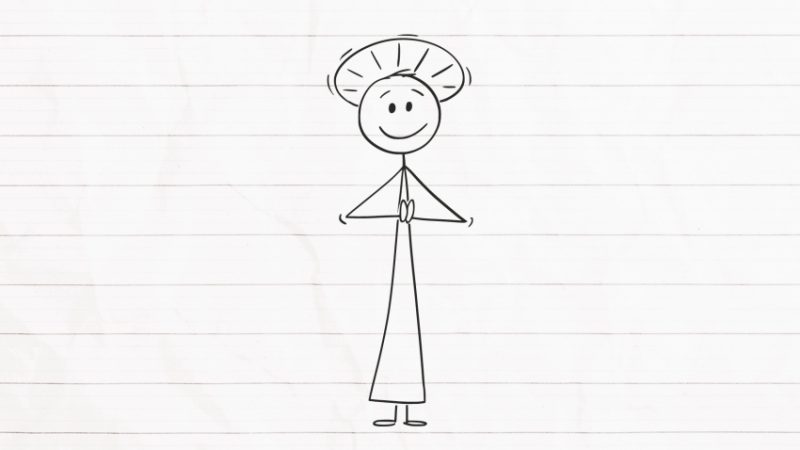Boys in education – Why are they struggling?

With boys faring markedly worse academically and socially compared to girls, we clearly need to do something, writes Hannah Day – but what?

- by Hannah Day

Catlin Moran’s new book, What about Men? has had, shall we say, mixed reviews. Some adore it while others have derided it. But one thing I think holds true is that men (or in the case of secondary education, boys) need and deserve more of our attention.
From consistently poorer GCSE results, to being influenced by the likes of Andrew Tate and reports of sexual assaults in educational settings – for many of our young men, something is clearly amiss.
What can schools do?
Feminism is about equality, not just women. While there is still progress for us to make, feminism has been incredibly effective in advancing the rights of women.
With women having previously been so badly represented both legally and socially – even as recently as within our own grandmothers’ lifetimes – it has been, and continues to be a vital cause. Now we need to do the same for boys.
We’re more likely to exclude boys from school than girls. They’re more likely to be addicted to drugs, alcohol or pornography. More likely to be homeless or in prison. And more likely to commit suicide.
In the same way that women have strived to address issues of equal pay, reproductive and divorce rights, and opportunities in the workplace, boys in education also have their own unique set of challenges.
“We’re more likely to exclude boys from school than girls”
If we don’t acknowledge these male-centric issues and seek to put in place meaningful support, boys won’t be equipped to grow into the men we expect them to be.
For too long, a certain strain of popular feminist rhetoric has amounted to ‘You’ve had it good, so step aside – and don’t think of complaining, it’s the girls turn.’
Yet in reality, this helps no one. As Moran herself said in a recent BBC interview, supporting men “Is the second half of feminism.”
We must use feminism to ensure boys aren’t left behind, and that those girls who have been so effectively supported get the men they deserve. Not just as partners, but also as fathers, brothers, friends, colleagues and more.
“We must use feminism to ensure boys aren’t left behind”
Stuck in the narrative
The current problems go beyond structural issues. Since women secured the right to vote, we’ve consistently told girls that to be a women is to be part of the sisterhood. Many of us have been taught to celebrate our femaleness, and that said femaleness can take many forms.
We may choose to wear make-up and dress in pink one day, then don an overall and fix the car the next. The narrative of what women can be and do has expanded considerably over time to include areas and domains long considered traditionally male.
For boys, however, their own narrative remains relatively narrow. For many, their notions of masculinity remain stuck in the 1950s. They’re anchored to outdated ideas that to be male is to be strong, domineering and powerful. But being all these things constantly is nether desirable, nor possible.
“For many, their notions of masculinity remain stuck in the 1950s”
To feel anxious, for example, is perfectly normal, and certainly not indicative of being lacking in masculinity. So too is enjoying anything that society might consider broadly feminine.
If ‘female’ things feel right to someone who happens to be male, then it follows that those things must be part of being male too. It’s our definitions that need changing, not the lived reality.
Check your language
Cast your mind back over the day just gone. Try to recall any throwaway comments you might have heard (or made) about how useless men are. Now feminise all the masculine words in those comments. I’ll do a few for you.
- “It was me and five useless removal women. None of them knew what they were doing.”
- “I asked her to pick up a birthday cake, and what did she get? A tray of donuts. How are we meant to put candles on them?”
- “Well I’m ready. I asked her to pack an hour ago, and she’s still not started.”
Ouch, right? Boys hear and feel throwaway comments about men being ‘useless’, ‘stupid’ and ‘incompetent’. If we don’t show boys respect, then how can we expect them to give it?
This has, in part, helped create the fallacy that respect and tolerance are somehow part of a zero-sum game; that respect given means respect taken from elsewhere.
It’s easy to spot signs of how this has taken hold in recent years, across males of several generations. And those of us who teach in schools need to counteract it as much as we can.
When the monsters look like clowns
Then there are the frequent comments and views expressed around men being violent. It can’t be denied that we are contending with a society-wide issue of violence perpetrated by men against women.
Yet while it’s estimated that 1.7 million women were victims of domestic abuse last year, there are still many more men who are decent people, living decent lives, compared to those who are not.
It’s possible for us to collectively acknowledge that men are more likely to be violent to a female partner than vice versa, while simultaneously making it clear that this isn’t the norm.
In a piece headlined ‘We need to be specific when we call men creepy’, Sunday Times columnist Charlotte Ivers highlights how we often refer to men via terms suggesting that they’re dangerous, when in fact they’re not.
In her view, we need to distinguish though our language between dangerous and unwanted behaviour, because otherwise, “The clowns look like monsters and the monsters look like clowns.”
There is a difference between predatory men, and men who have yet to fully internalise the conduct required of adults. Though if we continue to do nothing about the deluge of porn our young people are consuming, then it’s even less likely that this conduct will be passed down.
“There is a difference between predatory men, and men who have yet to fully internalise the conduct required of adults”
Boys in education
Blaming men for their behaviour is only fair if we’ve shown them how to behave and they still chose to do otherwise. For many, their teachers will come from a wide range of sources and backgrounds – many brought to them via the rabbit hole that is the internet, with little correction or alternative teaching from elsewhere.
Note, this isn’t an excuse. You can, of course, criticise specific behaviours or individuals – but we should try to avoid criticising all men.
We’ve perhaps spent so much time saying men have had it easy, that we’ve fallen into repeatedly putting them down without thinking about it.
If boys in education are made to feel that they have it all, while at the same being given so little, they’ll end up feeling both confused and resentful.
This then allows ample space for negative influences to take root – but only if the soil has been prepared. By persisting in such thoughtless use of language, we’re actively preparing that soil.
And yet, despite so little being done to support the specific needs of our young men, the majority are still growing up to become wonderful adults.
Imagine if we could make changes that serve to celebrate and build up boys in education, in a similar way to how we’ve nurtured girls. What might the next generation look like then?
Hannah Day is head of art, media and film at Ludlow College










